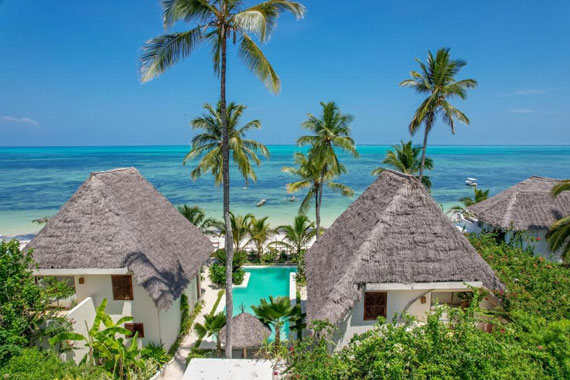Jambiani Beach Zanzibar
Jambiani Beach: Jambiani is a tranquil seaside haven where one may disengage from technology and immerse oneself in the local population, embracing the cadence of a traditional fishing village. In Jambiani, tranquility prevails, and neither calendars nor alarm clocks disrupt your serenity. Conversely, when you dedicate extensive days to the beach and become engrossed in nocturnal card games, you will not have remorse. It is situated on Unguja, the largest island in the Zanzibar archipelago, along its southeastern shore.
Jambiani Beach, located on the southern coast of Unguja, is more tranquil than Nungwi Beach and is a preferred location for picnics and beach soccer matches. Jambiani is the perfect destination for anyone wanting a serene and authentic beach to relax on following a safari. This beach, unlike many in the north, boasts beautiful, white sand and minimal presence of sea urchins or rocks.
Wading, snorkeling, and diving are all optimal activities in the expansive lagoon of swallow water, which also offers an excellent perspective of marine life. Jambiani is an excellent location for windsurfing or kitesurfing due to its reliable side shore winds. The Indian Ocean is conducive to swimming at high tide, although the beach is enjoyable for walking at low tide.

Things to do in Jambiani Beach
For adventure and physical activity, embark on a bicycle tour to see the village of Jambiani and its surroundings. It provides an exquisite insight into quotidian existence and stunning natural landscapes.
Scuba diving: Jambiani Beach is an excellent location for scuba diving. The Blue Lagoon in Dongwe, a mere 15-minute taxi ride from Jambiani, is the premier destination (or somewhat longer by bicycle). The Blue Lagoon provides excellent clarity and has a shallow depth ranging from 1 to 4 meters. We recommend indulging in lunch at the Rock Restaurant following your snorkeling activity. This distinctive restaurant is situated 20 meters above the river on a rock formation.
Fishing: We may arrange a half-day or full-day excursion for big game fishing. The Indian Ocean is famous for its exceptional game fishing and hosts a diverse array of fish, including Dorado, tuna, marlin, and sailfish. Venture into the deep waters to capture stunning large fish that can weigh up to 60 kg.
Local dhow excursions: Dhow boats, traditional fishing vessels, are utilized throughout the Arabian Gulf and in former Arab colonies. We recommend undertaking a journey at sunset to witness the stunning panoramas as the sun descends into the waters. Alternatively, you may embark on a day trip to engage in traditional fishing from a dhow boat. These boats remain vital to the livelihoods of local fishermen.
Jambiani is an excellent location for windsurfing or kitesurfing owing to its reliable side shore winds. The waters are shallow, inhabited by diminutive sea urchins, and the shores are tranquil. Stroll along the unspoiled beaches: low tide is the optimal opportunity for a delightful walk while appreciating the breathtaking view of the transparent ocean.
Visit a nearby village to explore local culture by engaging with a tailor, school, or boatyard. Furthermore, one may witness how indigenous people utilize coconuts and seaweed to produce an array of products, including soap and cream. Proximity to Jambiani includes visits to Kuumbi Caverns and Kuza caverns, among other caverns. Adventurers seeking to investigate the intriguing interior structure of the tunnels and their remarkably cool waters are in for a unique adventure.
When is the optimal time to visit Jambiani Beach?
Tanzania experiences a monsoon climate characterized by elevated sun radiation. The period from July to March is ideal for relaxation. April, May, and November are the months characterized by increased precipitation. In February, the Tanzanian summer reaches its peak, featuring daily temperatures of 38°F for air and 30°F for water. The constant sea breeze in Zanzibar results in a temperature variation of 6 to 10 degrees.
